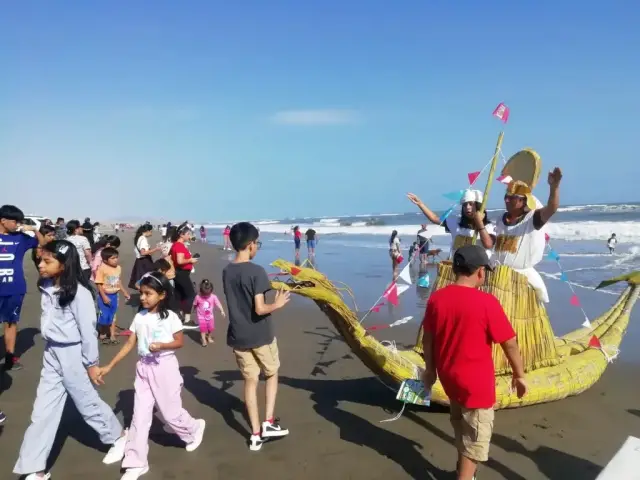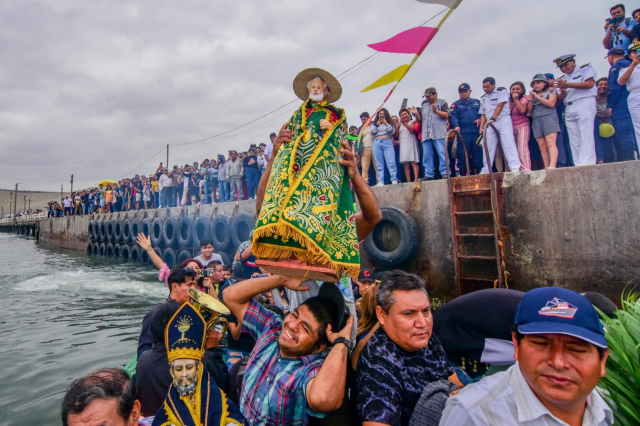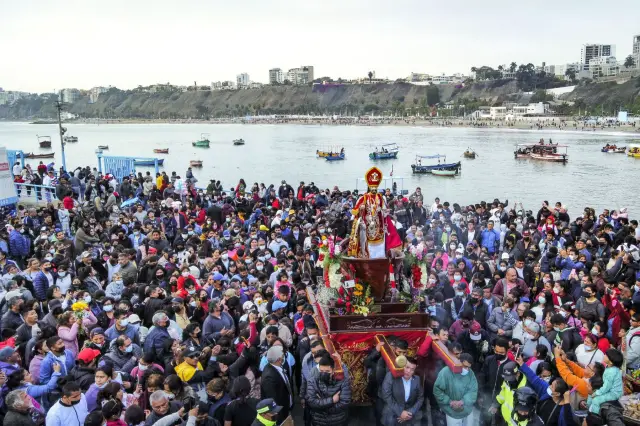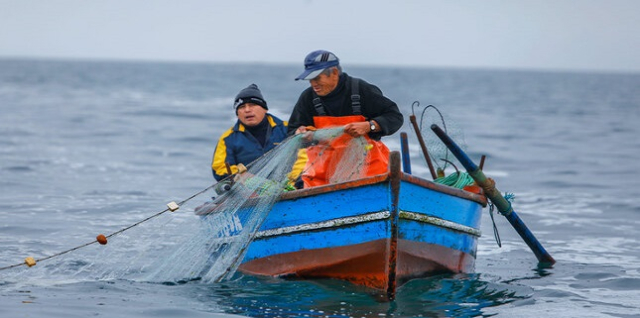Fishermen's Day in Peru , celebrated every June 29th , is one of the most significant holidays for the country's coastal communities. This date, dedicated to honoring Saint Peter , the patron saint of fishermen, represents a fusion of religious tradition and recognition of one of the country's oldest and most demanding occupations. From the early hours of the morning, thousands of Peruvians in ports such as Chimbote, Callao, Paita, and Ilo gather to participate in masses, maritime processions, and cultural activities that exalt the work of men and women of the sea. Beyond the festive atmosphere, this day also invites us to reflect on the importance of fishing to the national economy and the challenges faced by those who dedicate their lives to this noble work. In this article, we will explore in detail how it is celebrated, its origins, and why we should value our Peruvian fishermen even more.
Origin and meaning of Fisherman's Day in Peru
Saint Peter: the patron saint who inspires faith and unity
The figure of Saint Peter has been venerated for centuries, as he is considered one of Jesus' first disciples and also a humble fisherman. This coincidence has led to his recognition in many parts of the world, especially in Latin America and Europe, as the patron saint of fishermen . In Peru, his feast day is celebrated with great religious fervor, especially in coastal cities and coves where fishing is part of the local way of life. Images of Saint Peter, often carved in wood or plaster, are carried in processions on land and sea, receiving the respect and prayers of the entire community. Devotion to Saint Peter transcends the religious, as he also represents the hope for good fishing, safety at sea, and the well-being of the families who depend on this activity.
Cultural significance of fishing
For Peruvians living in coastal areas, fishing is not simply an occupation, but a cultural legacy passed down from generation to generation. From ancestral artisanal fishing techniques to modern industrial vessels, fishing is a way of life that shapes customs, festivities, cuisine, and community values. The sea is seen as a generous but unpredictable ally, and the fisherman is the one who communicates with it every day in search of sustenance. This deep relationship between the sea and the community makes Fisherman's Day a moment of collective pride, respect for nature, and affirmation of the Peruvian coastal identity.

This is how Fisherman's Day is celebrated in the coastal regions of Peru.
Iconic festivals by region
In each Peruvian port, the celebration has a particular flavor, although all share a spirit of gratitude and homage. In Chimbote , considered the country's fishing capital, the day begins with a field mass on the dock and continues with a majestic maritime procession where dozens of fishing boats escort the image of Saint Peter across the bay. In Paita , Piura, devotion is expressed through religious activities, food fairs, and the traditional election of the Fisherman's Queen, an event that involves the entire community. In Callao , the country's most important port, photography exhibitions, art festivals, and meetings with fishing industry officials are organized. In Ilo , Moquegua, the celebration is held with regattas, seafood cooking competitions, and civic parades that demonstrate the region's fishing pride.
Common activities
During Fisherman's Day, it's common to see blessed nets , boats decorated with flowers and flags, and families gathered around seafood. Food fairs are one of the most anticipated attractions, where you can sample dishes such as ceviche, sudado, chicharrón de squid, and rice with seafood. There are also posthumous tributes to deceased fishermen, marine skills competitions, and educational activities for children. All of this takes place in an atmosphere of celebration, but also of profound respect for the sea and those who make their living from it.

The Peruvian fisherman: key role and current challenges
Importance in the national economy
Fishing in Peru is one of the pillars of the national economy. Our country has one of the richest marine areas in the world , thanks to the Humboldt Current, which favors the existence of species such as anchovy, horse mackerel, mackerel, and many other aquatic resources. More than 80,000 artisanal fishermen and tens of thousands more in industrial fishing depend on this activity. Artisanal fishing , in particular, has a direct impact on the diet of Peruvians and the economy of coastal coves, towns, and cities.
Main challenges
However, the fishing sector faces multiple challenges. These include the overexploitation of certain species , marine pollution, and the lack of access to health and social security services for many fishermen. Added to this is the impact of climate change , which alters species cycles and migratory routes. Many fishermen also face difficulties formalizing their activities, which limits their access to benefits and legal protection. These problems require urgent solutions coordinated by the State, fishing organizations, and civil society.
Actions in progress
The Ministry of Production (PRODUCE) has been promoting policies to formalize and train artisanal fishers. Additionally, organizations such as WWF, Oceana, and other NGOs work with communities to promote sustainable fishing practices and protect vulnerable species. There are also community monitoring programs , the use of clean technologies, and infrastructure development in fishing coves. These efforts seek not only to protect marine resources but also to dignify the work of Peruvian fishermen.

Fishing tourism and marine education in Peru
Environmental education and awareness
Fishermen's Day also provides an excellent opportunity to raise awareness about the importance of protecting the sea . Various schools, universities, municipalities, and NGOs conduct educational campaigns to teach children and young people about marine biodiversity, the danger of plastic in the oceans, and the need for responsible consumption of seafood. This educational work is key to ensuring a sustainable future for future generations.
Experiential and gastronomic tourism
Many coastal regions have begun to develop experiential fishing tourism , where visitors can accompany fishermen on their daily journey, learn about traditional fishing techniques, and taste their catch. This type of tourism not only generates alternative income for fishermen but also allows tourists to understand and appreciate the effort that goes into each seafood dish that reaches their table. Areas such as Paracas, Tumbes, and Pisco have shown great potential for this tourism approach.
Frequently asked questions about Fisherman's Day in Peru
Why is Fisherman's Day celebrated on June 29 in Peru?
Because it coincides with the feast day of Saint Peter, apostle of Jesus and patron saint of fishermen, a central figure in Peruvian coastal communities.
What activities take place on Fisherman's Day in Peru?
Masses, processions on land and sea, food fairs, contests, and cultural activities are organized throughout the Peruvian coast.
What is the role of the Peruvian artisanal fisherman?
Small-scale fishermen are key to the national food supply and the economy of hundreds of coastal communities. Their work represents effort, experience, and cultural heritage.
What challenges does the Peruvian fishing sector face?
Lack of formalization, overfishing, marine pollution, poor access to healthcare, and the effects of climate change.
How can we support Peruvian fishermen?
Consume responsibly sourced seafood, support local fairs and festivals, and promote respect for the sea through education.
Let's celebrate the work of those who feed us from the sea
Every June 29th , Peru pays tribute to one of its oldest and most fundamental professions: fishing. Fishermen's Day is an opportunity not only to celebrate with faith and joy, but also to recognize the sacrifice and courage of those who brave the ocean every day . From dawn to dusk, Peruvian fishermen are a testament to resilience, love for their craft, and commitment to their community. May this date always remind us of the importance of protecting our seas, valuing the work of fishermen, and continuing to build a more just and sustainable country from the coast.
